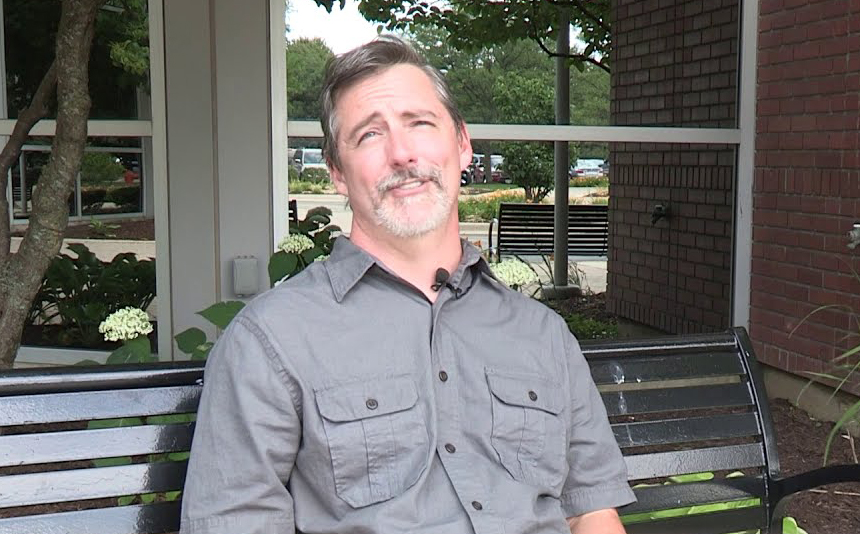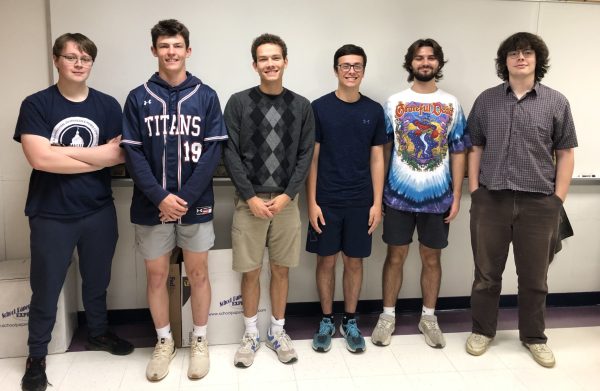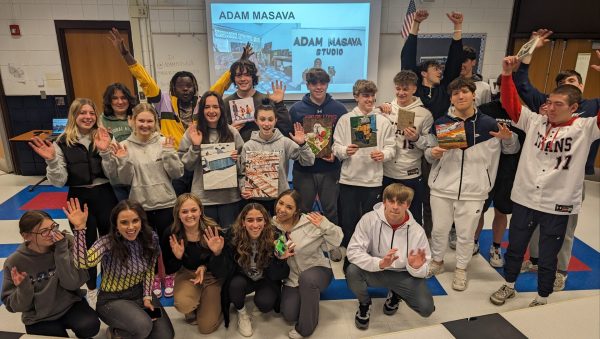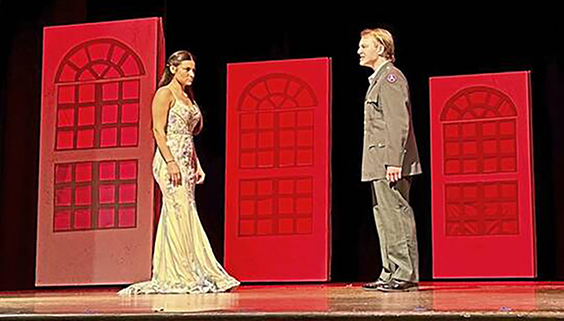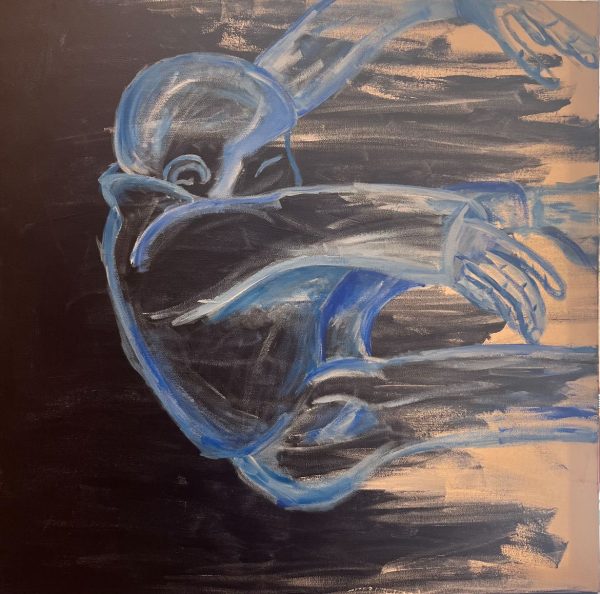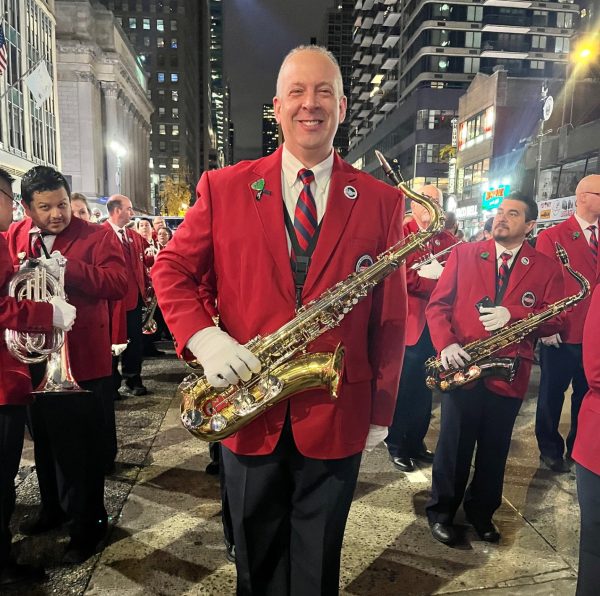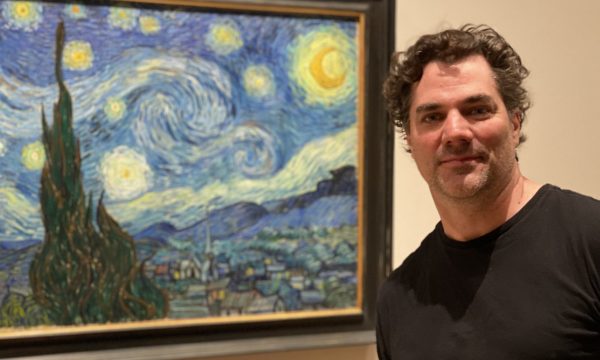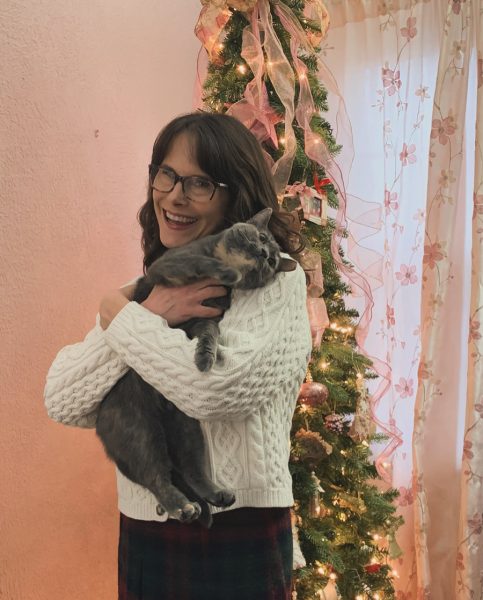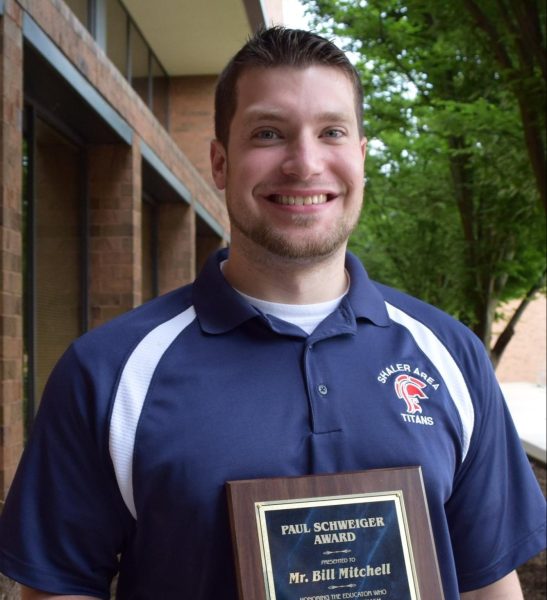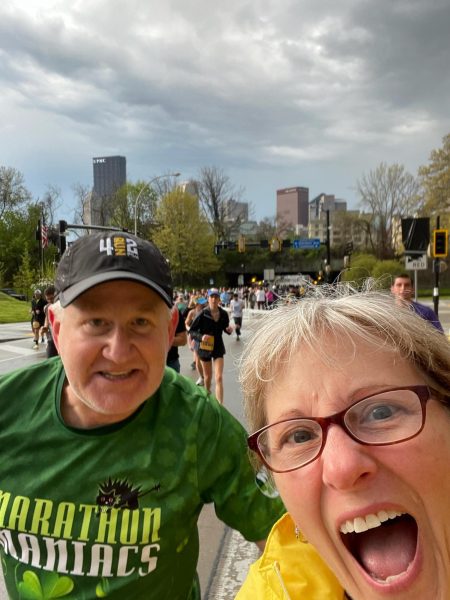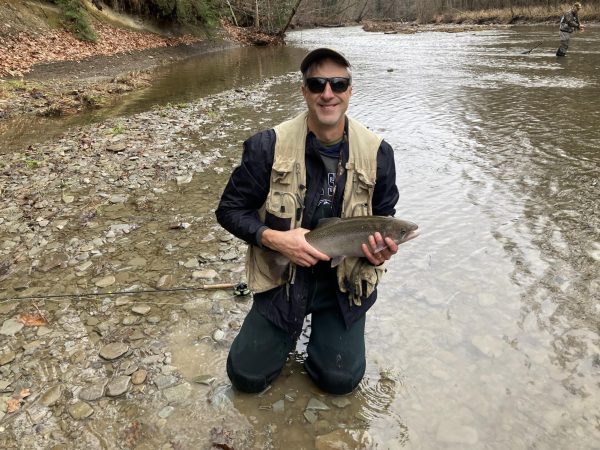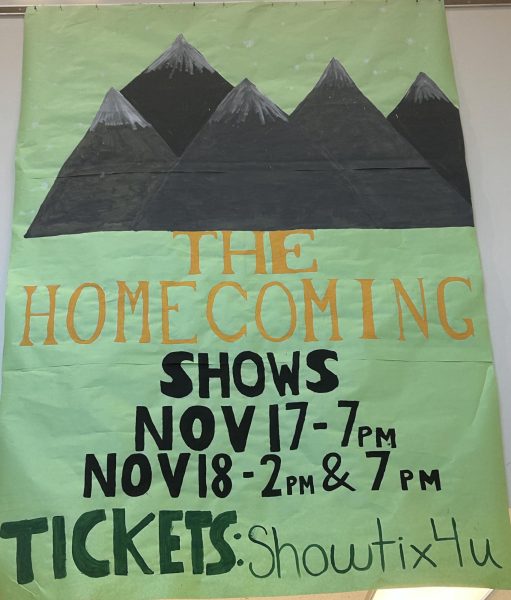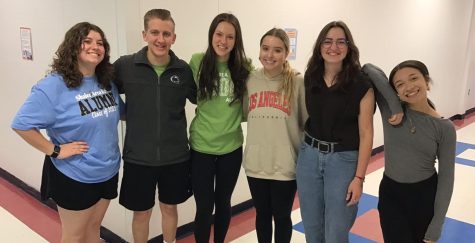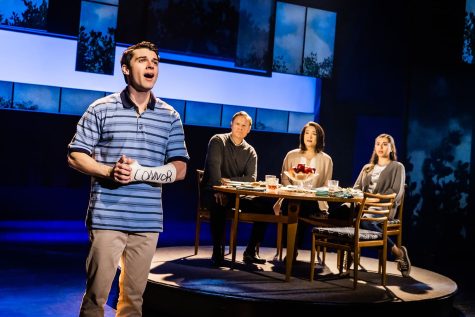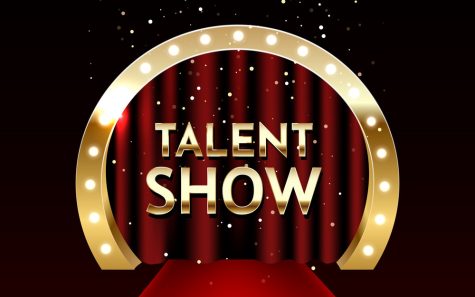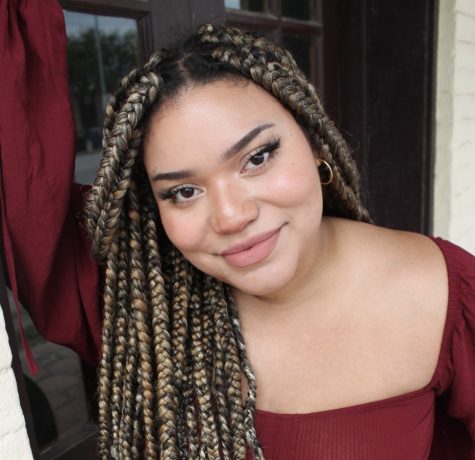Q&A: The Oracle chats with author John David Anderson
Young Adult Author John David Anderson has written 10 YA books including his most recent, “One Last Shot”.
John David Anderson is an author of middle-grade fiction from Indianapolis, Indiana. His books include Sidekicked, Posted, Ms. Bixby’s Last Day, Insert Coin to Continue, Finding Orion and The Dungeoneers. His stories strike a balance between simple, easy-to-read plots for younger readers and complex, human characters that challenge readers to really think about different themes. He shared what the writing process is like for him, and why he writes to the audience that he does.
Q: What was the process you went through to become an author?
A: The process that I took started with having literary heroes and immersing myself as much in their worlds as possible before I even really wet my feet with my own work. I went to college and majored in English, got a master’s degree in literature, and then taught literature and writing for seven years. So, I was reading about three books a week, just drowning myself in language and narrative before I really made a concentrated effort to become a writer. That’s one way to go about it. Another would be to go out and live life and write about your personal experiences, but I found books to be infinitely more interesting than my own life. I always knew that I wanted to be a storyteller, even from a young age, and a lot of that stemmed from a need to escape to exciting new worlds of my own design.
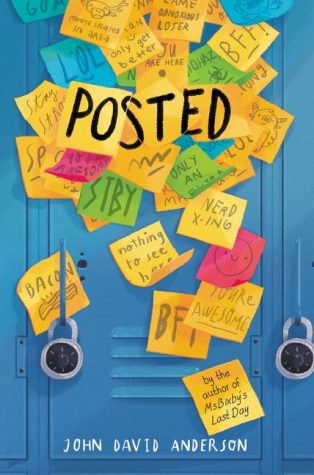
What made you want to write middle-grade fiction?
My very first novel I assumed was young adult, actually, because it had 3 curse words in it. At that time, Harry Potter was just catching fire, so middle-grade was kind of this evolving sphere. A lot of kids read Magic Tree House and then jumped to Stephen King. And then JK Rowling comes along and helps to define this space for 8-13 year-old readers, so I happened to fall into that space at the right time. I always knew that my sense of humor appealed to 11 and 12 year olds. It’s impossible for me to write a novel that doesn’t include flatulence, for example, or at least have that kind of snarky, sarcastic tweenage edge to it, but at the same time I want to be able to challenge readers and have them ask questions about life and society and their role and agency in it. And that requires a certain sophistication in my young readers. You’ve got to be curious enough to start thinking about these things, to challenge the ideas that your parents feed you, to question the world around you. And so it was a combination of those two: finding the sweet spot between my goofy ten-year-old mentality and my desire to get young readers to really think about some deeper growing-up issues that I knew they would be grappling with.
How do you take an initial idea and turn it into a novel?
I think that absolutely depends on the book. In my writing, I’m kind of all over the place- I’ve got fantasy novels, and superhero novels, and realistic novels, and a pseudo-sports novel, and I’m coming out with a ghost story next year, so a lot of it is just me challenging myself to try something new. For example, I wrote a book called Ms. Bixby’s Last Day, which is about a teacher who has cancer and these three boys who go to break her out of the hospital. Part of the inspiration for that book came from characters and voices that were in my head, but a lot of it came from me just wanting to write a book that had more than one narrator, to tell a story from multiple points of view. As a writer, I like that challenge of trying something new; I think that’s where a lot of my drive comes from to work on a novel. Yes, Star Wars also usually finds its way in there somewhere too. I don’t think I’ve written a novel yet that doesn’t have at least a Star Wars or a Princess Bride reference. But I think a lot of it just comes from that merger of artistic challenge and then finding a hook- whether that’s a great character, a particular conflict, or an authentic voice- something that hasn’t been done before, or at least hasn’t been done quite the way I think I could do it.
In a lot of your books, there’s an almost gradual plot twist- there’s a big reveal at the end, but it also feels like it was there the entire time. What are you wanting readers to get from that?
It could just be laziness on my part. I sort of write a first draft and I figure out where I’ve gotten to, and I’m like, “Nope, I didn’t really build up to that at all!” So I sort of reverse-engineer it, add a quote here and some foreshadowing there. But some of my books are specifically structured in a way to provide a slow reveal. And I think I do that because, for me, it mirrors the process that my readers are going through, in that all of middle-grade is essentially a coming-of-age experience. We’re all starting with a sort of blank slate, and then all this stuff gets heaped on us and we have to claw our way to the top and figure out who we are and what we want out of life. And I think that needs to be a revelation that is not an epiphany. I think too often in books you have that moment where you’re like, “Oh! Ok, well, we just have to reverse the power flux coupling and now we can totally save the universe!” But you want to have struggled to get to that point. Harry doesn’t beat Voldemort with Horcruxes. He beats Voldemort with friends, and with courage, and with love from his parents, and these are not things you can just tack on in book six. These are things you have to be built up from the very beginning. So I’m always trying to do that in my books- trying to have my character’s growth mirror the increased tension of plot in such a way so that it seems at least believable that they would emotionally get to a place where they can solve their problems and save the day.
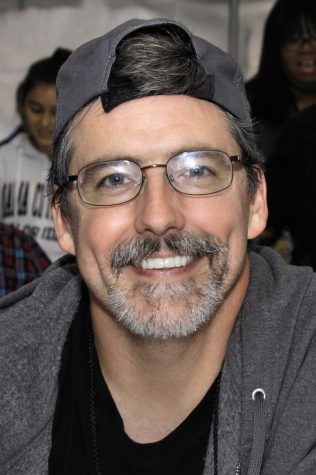
As a writer, what’s it like going from the first draft to the final published story?
Yeah, so imagine taking a chainsaw and revving it up and then just shoving it in your belly and tearing your insides to shreds. It’s painful. And it gets harder as it goes along. First drafts for me are the most fun thing in the world. When I sit down at a blank screen and I’ve got all these ideas percolating, and I can let my imagination run free, that’s artistic bliss. When I’m on draft seven and I’m working with all of my editor’s notes and I’m trying to figure out how to make this clearer, but at the same time not give it away, and at the same time make it deep, but at the same time don’t make it cliché, and figure out a metaphor that nobody’s ever used before, and learn how to finally use a comma, then I am often literally pounding my head against the screen. So I would say that for me it’s a process of diminishing returns. I start at a high level of enthusiasm, and as the process goes on the writing quality goes up but my energy and ability to cope with it goes down. Eventually I get to the point where I say, “that’s as good as it’s going to get.” It’s never going to be perfect, but I’m all out of blood, sweat, and tears. And hopefully it’s good enough that I’m at least not ashamed to let the world see it.
When you have a lot of ideas for different stories, how do you pick the one that you decide to turn into a book?
This is assuming that when I pick an idea carry through with it then it actually becomes a book, but I actually have like 15 or 16 completed or half-completed novels on my laptop that have never been published. One thing I can tell you is that it’s never a consideration of “is this going to sell?” When I decide that I’m going to write something, I do so whether I know it’s going to get published or not. More often not. For me one key to committing to a story is falling in love with my characters. Plots are great, and they keep the pages turning, but when it comes to getting invested, if I’m not absolutely connected to my main character, if I don’t feel what they feel, then I’m never going to finish the book. Also, every book is essentially a mystery novel, at least for me. I don’t plan anything. I just write and write until I uncover the end for myself. And so every twist of the plot and every new step in a character’s evolution is a kind of discovery, which makes the process fresh and exciting.
Out of all your characters, do you have a favorite one, or does it change with the book you’re writing?
I wouldn’t necessarily say that I have a single favorite. I’m really partial to Sam the talking dog in the book Granted, because he’s a sweetheart, and he’s funny, and he adds a whole new dynamic to that book. He’s not the main character, but he provides the book’s heart. I also really like Lena Proudmore from The Dungeoneers– she’s a kick-butt barbarian and sort of honors a lot of the strong female influences in my life. I think the characters that I tend to like best, though, are the ones that are the most complicated- the ones that challenge me to see the world in a way that I normally wouldn’t. So, for example, in Ms. Bixby’s Last Day, the character I like best is Steve. Steve is quirky. His problems and concerns were unfamiliar to me at first. His personality was the most challenging for me to wrap my head around because it’s so far from my own. It’s that challenge that makes him interesting and a personal favorite.
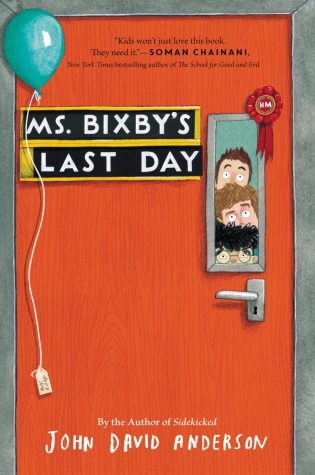
How has the COVID-19 Pandemic affected you as an author and your writing?
Obviously so many of us have struggled this past year. I know other authors who have felt their creative life-force kind of drained out, and I feel the same. And it’s hard because you see so much negativity and you ask yourself, what can I do about it? Something like this hits, and you feel a weight. There are kids out there who read what I write, so do I have a responsibility to speak to this moment? And, I would argue, yeah. Not just for me, but for everybody. We all have a responsibility to use whatever gifts or talents or platforms we have to rise up to an occasion. I think that, for me personally, it comes down to hope. I’ve actually written some pretty dark stuff this year, and as I’m writing these things I know that I’m harnessing a lot of the negative emotions I’m experiencing. But underneath that has been this call, this sense that, whatever happens in this book, I’m going to give this character and this reader something to hang on to, something to look forward to. Something to hope for.
What do you want your readers to take away from your books?
I’d like my books to linger. In other words, I want my readers to be a little bit thoughtful or confused or challenged or curious at the end. I want them to enjoy the process, obviously-reading books should be pleasurable- but at the same time, when they close a book, I really want them to have some lingering thoughts and questions wriggling around in the backs of their brains. So that they’ll come across an experience- maybe they read Posted, and they see something bad happening at their school, and they’re like, “Dude. I should step in and say something”, or they notice that their teacher is having a day, and they leave him or her a kind note, giving them a Ms. Bixby moment–something that lets them carry the experiences that they’ve had in the book into their real life and lets them apply them. I’m not saying my books are full of deep knowledge that is all of the sudden going to revolutionize the way kids think and act, but I think they can trigger something, they can help young readers make cool connections to their own lives, and those connections can lead them to do something adventurous or to be a better person or to write and share their own story. And so I guess if there’s any way that my books can inspire people, I hope it’s just making them a little more thoughtful about the world around them and helping them understand that everyone has a valuable story to tell.
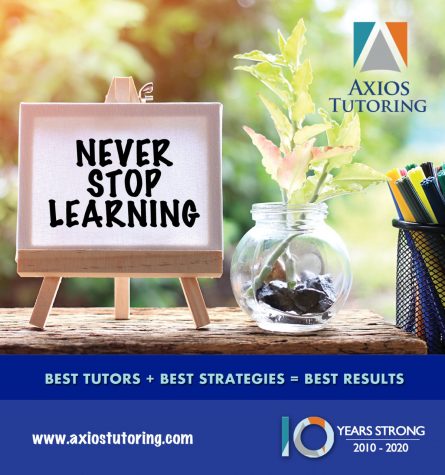
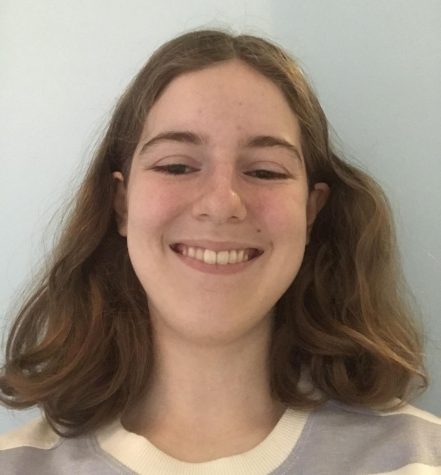
Hi, I’m Maggie. I collect business cards and I can’t wait for the next Ford Truck Month! My favorite word is ubiquitous. This is my first year on newspaper...


